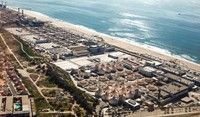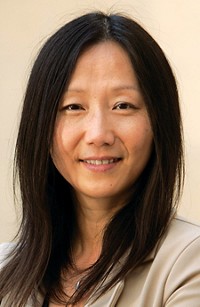Advertisement
Grab your lab coat. Let's get started
Welcome!
Welcome!
Create an account below to get 6 C&EN articles per month, receive newsletters and more - all free.
It seems this is your first time logging in online. Please enter the following information to continue.
As an ACS member you automatically get access to this site. All we need is few more details to create your reading experience.
Not you? Sign in with a different account.
Not you? Sign in with a different account.
ERROR 1
ERROR 1
ERROR 2
ERROR 2
ERROR 2
ERROR 2
ERROR 2
Password and Confirm password must match.
If you have an ACS member number, please enter it here so we can link this account to your membership. (optional)
ERROR 2
ACS values your privacy. By submitting your information, you are gaining access to C&EN and subscribing to our weekly newsletter. We use the information you provide to make your reading experience better, and we will never sell your data to third party members.
Awards
Chemist and environmental engineer named 2022 MacArthur Fellows
MIT chemist Danna Freedman and University of Georgia environmental engineer Jenna Jambeck awarded ‘genius grants’
by Ariana Remmel
October 13, 2022
| A version of this story appeared in
Volume 100, Issue 37
Danna Freedman of the Massachusetts Institute of Technology and Jenna Jambeck of the University of Georgia are among the 25 recipients of this year’s “genius grants” from the John D. and Catherine T. MacArthur Foundation. Each of the 2022 MacArthur Fellows will receive $800,000 over 5 years to pursue their creative vision “with no strings attached,” according to the foundation’s website.
Freedman is a synthetic inorganic chemist designing new materials for quantum information technology. She synthesizes organometallic coordination complexes with tunable electronic, magnetic, and optical properties that allow them to serve as molecular qubits, the basic unit of information storage in quantum systems such as quantum sensors. These sensors can detect even the smallest change in magnetic and electric fields, which could help scientists study neurobiology at the quantum level.
Freedman says she is excited to foster collaborations between the designers of quantum information systems and scientists interested in applying that technology to other disciplines. She is considering how to best use the fellowship to facilitate those connections moving forward. “I have this amazing opportunity to think on the scale of decades as opposed to years,” she says.
Jambeck is an environmental engineer whose research takes a global approach to addressing plastic pollution. She is developing tools to capture a holistic view of how plastic waste moves through the environment and the social factors driving pollution. Jambeck and her team work to communicate these results so that local communities have the data they need to implement evidence-based policies, she says. One tool they developed to aid these efforts is the Marine Debris Tracker mobile app, which allows anyone to log observations of plastic debris in an open-source data set that could help researchers monitor pollution on a global scale as well as provide information to individual communities.
Communicating science is “a key component to informing policy,” Jambeck writes in an email to C&EN. She hopes the fellowship will help her team’s projects make an impact on a larger scale. “More communities will have the data they need to make decisions that fit their community context,” she writes.
UPDATE:
This story was updated on Oct. 17, 2022, to include a description of quantum sensors, information about the Marine Debris Tracker mobile app, and comments from Danna Freedman and Jenna Jambeck.




Join the conversation
Contact the reporter
Submit a Letter to the Editor for publication
Engage with us on Twitter